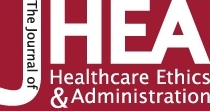Back Issue: Vol.7 No.2 (Spring/Summer 2021)
ISSN 2474-2309
Research Ethics
- Virginia M. Miori, PhD., Kyle Chalmers, CISA., Daniel J. Miori, RPA-C, MS
Address correspondence to: Virginia M. Mori. Ph.D., Saint Joseph’s University. Philadelphia, PA 19131. Email: vmiori@sju.edu
Pages: 1-15
Learning Health Systems (LHS) produce analyses supporting medical decision making. Though algorithms are chosen to eliminate bias, we are left with unconscious bias present in data, due to lack of representation for marginalized populations. This is especially problematic in palliative care. Medical practitioners lack historical foundations for decision making for patients in these underrepresented populations. This paper first reviews the ethical foundations that drive our approach, then describes data stratification and analysis supporting a data-ethical LHS. Kaplan-Meier curves are generated for each of the stratum, demonstrating the value of palliative care and its impact on survival. Data were collected from government and foundation sources, stratified and analyzed to more appropriately weight medical history and characteristics to improve decision making for all populations.
“Very well. Sea,” cried Canute, “I command you to come no further! Waves, stop your rolling! Surf, stop your pounding! Do not dare touch my feet!”
